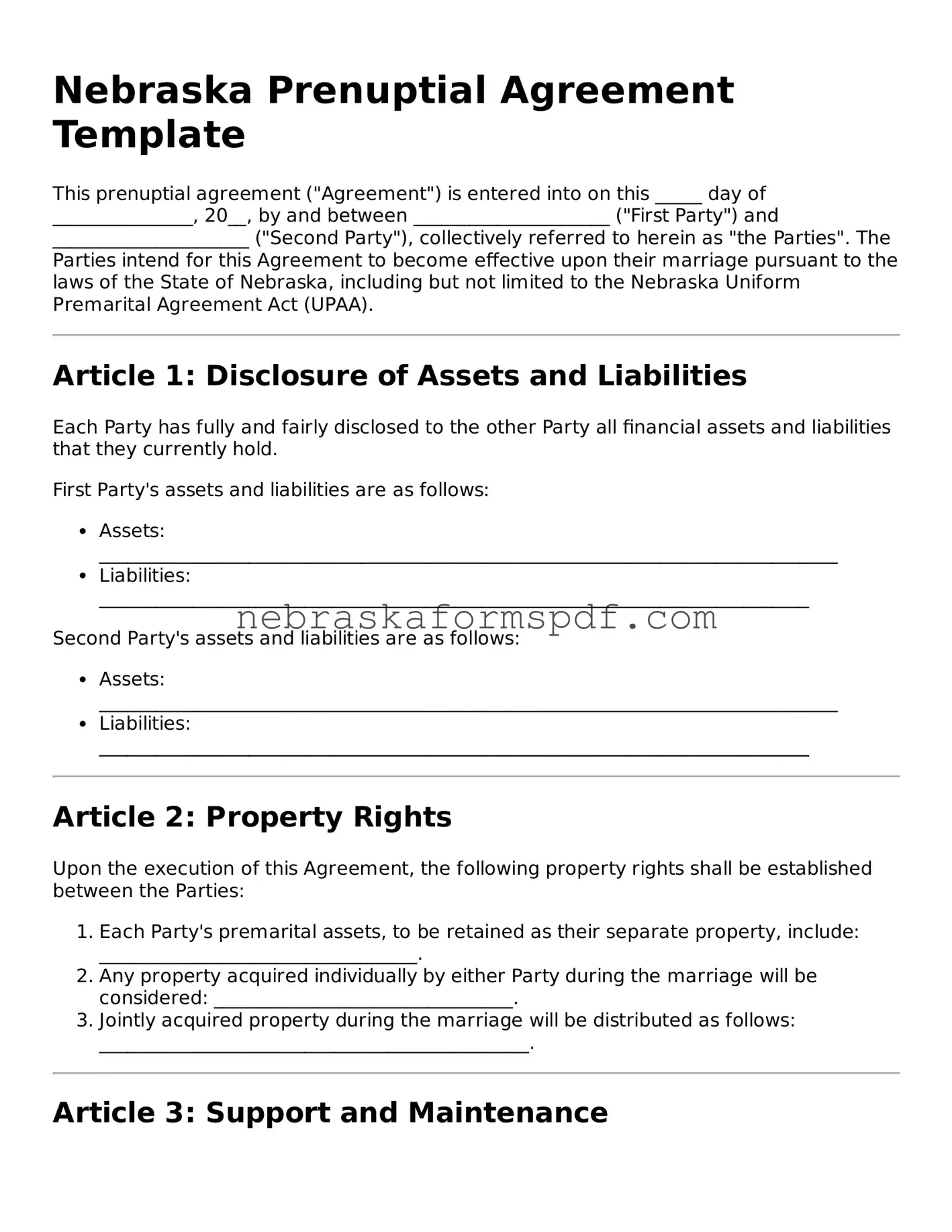Fillable Nebraska Prenuptial Agreement Template
A Nebraska Prenuptial Agreement form is a legal document that allows couples to determine how their assets and responsibilities would be handled in the event of a separation or divorce, before they get married. By preparing for the future, couples can ensure clarity and fairness, while also protecting their individual interests. This proactive step is becoming increasingly common as a way to provide peace of mind for both parties entering into marriage.
Open Editor Here

Fillable Nebraska Prenuptial Agreement Template
Open Editor Here

Open Editor Here
or
Click for PDF Form
Don’t exit with an incomplete form
Finish Prenuptial Agreement online using a quick, guided process.